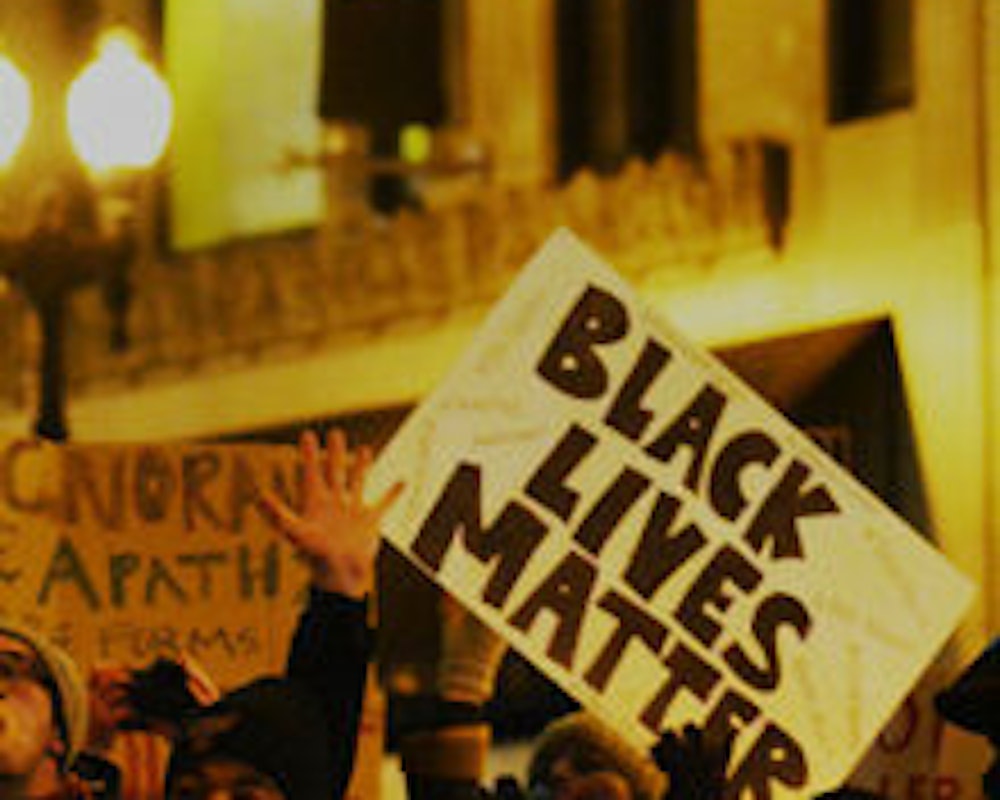
The Bandwidth Cost of “Not OK”
The brain that is focused on worrying about microaggressions, or not belonging, or stereotype threat, or physical and psychological safety, is not available for learning. There are things we can do to create learning environments in which all stud
June 4, 2020
At this moment of the hopefulness of peaceful protest and the devastation of violence, I so want to say something profound and wise, and I have, inadequately, only words. Like you, I find myself in tears several times a day. And I am an economically secure, highly educated, straight white woman. I am writing this while sitting on the deck of my son’s house in Wichita, Kansas, where I am visiting from my home in Chicago. I am safe and loved and healthy. My bandwidth—available cognitive capacity—is seriously taxed by both the pandemic and by national events. In this moment, if we’re open to it, “people like me” can understand that this bandwidth-depleting thing happening to us today happens to black and brown people in this country every day—for generations. In this moment, the tax on their bandwidth is many times that on mine. And their depleted bandwidth is no more under their control every day than mine is under my control today.
Ok, back up. . . . For the past few years, I’ve been thinking, writing, and talking about the ways in which poverty, racism, homophobia, xenophobia, ableism, and all the other “differentisms” rob college students of the bandwidth they need to succeed in school and how we can help them recover. The premise is that the part of the brain that is focused on worrying about microaggressions, or not belonging, or stereotype threat, or physical and psychological safety, is not available for learning. There are things we can do to create learning environments in which all students feel safe and respected and visible, in which they can recover some bandwidth. The COVID-19 pandemic, and now the tragic events related to systemic violence against black and brown people, have served to spotlight inequities in the United States that have been around forever, but which many of us have been able to ignore.
Underlying all of the bandwidth stealers related to poverty, racism, etc. is uncertainty. Both the pandemic and social violence increase levels of uncertainty for citizens in direct proportion to their place in the hierarchy of income, wealth, and health. We know that black and brown people have been more likely to get sick from this coronavirus and more likely to die from it than white people. We know that black and brown people are much more likely to be targets of police violence and far more likely to be imprisoned than white people. Our students and our faculty/staff colleagues in these groups experience the bandwidth-stealing effects of these realities every day. Inspired by an article by Danielle Cadet, I sent this sentence as part of a message to my community college colleagues: “I know you're tired, worried, sad, furious. . . . I know that when you’re doing your work every day and acting like you’re ok, you’re not—and that your acting ok comes at a huge cost.”
Our black and brown colleagues need our support right now. We are all struggling with many bandwidth stealers, including working at home with kids who need both our attention and our computer, illness and death in our families, anxiety about our jobs and how we can keep them and do them well, the welfare of our students and their capacity to cope in the remote learning environment, etc. Our black and brown colleagues have all that on their minds, plus the soul-wringing reality that we live in a country where it is acceptable to treat people who look like them with disregard and violence. Here are just a few ideas of what we can do to support them:
- We can acknowledge the bandwidth cost of being black or brown in a racist country.
- We can express concern and empathy while avoiding “I know how you feel” (because, really, most of us don’t).
- We can offer support. Ask, “How can I be helpful? Are you and your family ok? Do you want to talk? Could I sub for you at a meeting today so you can have a moment?” And then just listen.
- We can examine every rule and regulation and procedure that we require of students (and employees), and ask, “Is this how we want them to be spending their precious bandwidth?” If not, simplify or get rid of it.
- In general, we can remove barriers, communicate unconditional support, and increase certainty where we can.
Mostly, don’t say, “I’ll sure be glad when things get back to normal.” Given the realities of inequality and the disproportionate burden of societal upheaval on our black and brown students and colleagues, let’s affirm what we can no longer deny that the “normal” state of affairs in this country was not working well for millions of people. Why would we want to get back to a normal that undermines the basic education and, therefore, the life chances, of millions of our neighbors? What can we learn from the multiple awful events of 2020 that we can use to fashion a new normal in which we can all survive and thrive?